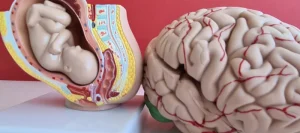Sober living
Alcohol intoxication: Signs, symptoms, and treatment
Over time, alcohol can cause damage to your central nervous system. A damaged pancreas can also prevent your body from producing enough insulin to use sugar. This can lead to hyperglycemia, or too much sugar in the blood. Here’s a breakdown of alcohol’s effects on your internal organs and body processes. These effects might not last very long, but that doesn’t make them insignificant. Some of these effects, like a relaxed mood or lowered inhibitions, might show up quickly after just one drink.
Warning Signs You’re an Alcoholic
The test is free, confidential, and no personal information is needed to receive the result. If you’re worried that you might have alcohol use disorder, don’t try to quit cold turkey on your own. However, certain food groups also have benefits when it comes to helping with the discomfort of withdrawal symptoms and detoxification. Screening tests are available to help you assess your drinking habits and relationship with alcohol. To find Alzheimer’s and related dementias research studies, visit the Clinical Trials Finder at Alzheimers.gov. Every treatment available today is due to people like you who choose to participate in clinical research.
What are the Symptoms of Alcohol Use Disorder (AUD)?
Many people use the terms “alcohol abuse” and “alcoholism” interchangeably. However, alcoholism refers to alcohol addiction or dependence, where the individual has a physical or psychological compulsion to drink alcohol. Alcohol abuse refers to a pattern of behavior where a person drinks excessively in spite of the negative consequences. Taking care of your physical, mental, and cognitive health is important for healthy aging. Even making small changes in your daily life can help you live longer and better.

Top doctors in ,
- There are other various warning signs to help detect potential alcohol abuse/misuse.
- People should also note that those with AUD may already be dehydrated, and further dehydration due to exercise may place people at an increased risk of seizures.
- Most residential treatment programs include individual and group therapy, support groups, educational lectures, family involvement, and activity therapy.
- Everyday Health follows strict sourcing guidelines to ensure the accuracy of its content, outlined in our editorial policy.
- Some people drink heavily all day, while others binge drink and then stay sober for a while.
Others, like loss of consciousness or slurred speech, may develop after a few drinks. Alcohol can cause both short-term effects, such as lowered inhibitions, and long-term effects, including a weakened immune system. Some people with cirrhosis have more than one cause of liver damage. Symptoms of cirrhosis may not appear until the liver is badly damaged.
Depression and overall mood

A 2020 longitudinal study demonstrated a link between positive mood and better cognitive control. Further studies are necessary to determine whether changes how to recognize signs and symptoms of alcoholism and alcohol abuse that improve mood could improve cognition. Research shows that whether you hold negative or positive views about aging may impact health as you age.

- Long-term alcohol use can affect bone density, leading to thinner bones and increasing your risk of fractures if you fall.
- Professionals in the alcohol treatment field offer advice on what to consider when choosing a treatment program.
- Excessive drinking is defined as 15 drinks or more a week for men and eight drinks or more a week for women.
- But you are deceiving yourself if you think that your drinking hurts no one else but you.
- As people age, changes such as hearing and vision loss, memory loss, disability, trouble getting around, and the loss of family and friends can make it difficult to maintain social connections.
- Roughly 80% are from families that struggle with multigenerational alcoholism.
